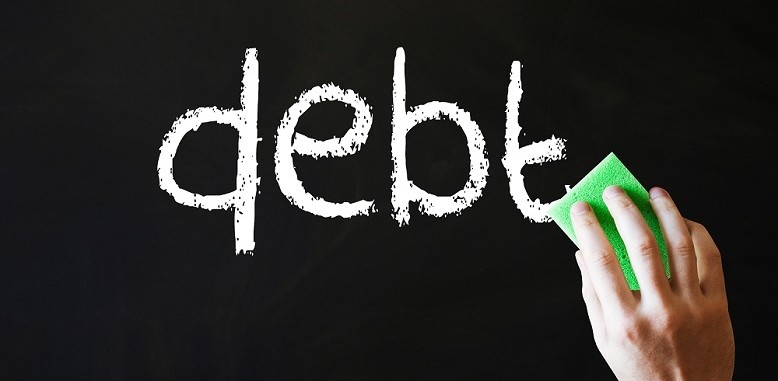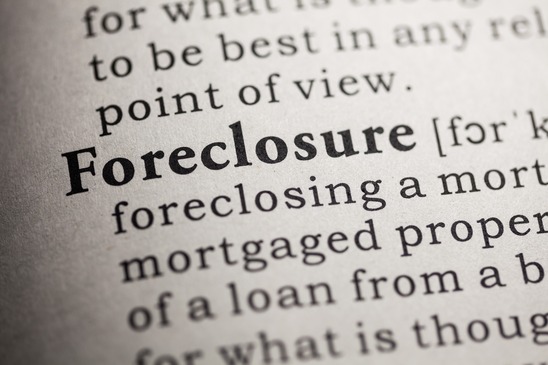Consumers who are struggling with credit card debt are often not sure where to turn for help. Recognizing this, for-profit debt settlement companies, who utilize savvy advertising methods, attempt to prey upon consumers and entice them into resolving debt issues through debt settlement “programs.” In these so-called programs, the debt settlement companies claim they will negotiate with consumers’ creditors to settle their debts for less than the full balance owed. However, a closer look at these programs will show they represent a great risk for consumers.
A debt settlement program normally requires making monthly payments into an escrow account created by the debt settlement company instead of making payments to the credit card companies. As that monthly deposits accumulate, the debt settlement company attempts to negotiate settlements with each creditor, one at a time. A debt settlement program generally takes between 36 and 42 months to complete. Due to the length of the programs and because the debt settlement companies are unable to prevent debt collection lawsuits or judgments, most participants do not typically complete the programs.
Debt settlement companies advertise their services in a variety of ways. They send out direct mailers promising debt reduction of up to 50%. (However, once the program’s cost and potential tax ramifications are taken into account, the savings are actually minimal.) They advertise on Facebook using ads that many may find misleading. They also advertise on television and on the radio. Some of their catchy advertising lines include: “we will tell you the secrets that the credit card companies don’t want you to know,” “no risk” and “pay off debt with no loans.” They also try to imply your credit won’t be damaged because you are “avoiding bankruptcy.” One company misleadingly advertises “you have the right to settle your debts for a fraction of the amount you owe.” Besides the fact that not paying a balance in full is considered a breach of contract, the actual savings from these programs is minimal, once the program fees are taken into account. In fact, according to the Consumer Financial Protection Bureau, failure to complete a debt settlement program can leave a consumer in even greater debt then when they started. This is a result of the late fees, interest and others fees that can quickly accumulate when your account is put into collection.
Feedback from our clients suggests that representatives from the debt settlement companies try to avoid discussing the true cost of their programs. The fine print of the agreements will show that they generally charge 20 to 25 percent of the total debt owed. For example, if you owe $30,000, the company may charge a fee of approximately $7,500. Taking into account the high fees, and potential tax consequences, the overall savings to the consumer is minimal. Accordingly, if you have high debt balances, the fees will be significant and disproportionate to any services actually provided. Furthermore, while fees are not supposed to be charged up front, we suspect that the companies frontload their fees into the earlier settlements, so that the debt settlement companies get paid whether or not the program is completed.
Another significant issue with debt settlement companies is that they do not adequately disclose the risks of their programs. The Federal Trade Commission identifies some of the key risks associated with debt settlement companies.
(1) Debt settlement programs often require that you deposit money in a special savings account for 36 months or more before all your debts will be settled.
(2) Many people have trouble making these payments long enough to get all (or even some) of their debts settled.
(3) Your creditors have no obligation to agree to negotiate a settlement of the amount you owe.
(4) Because debt settlement programs often ask — or encourage — you to stop sending payments directly to your creditors, they may have a negative impact on your credit report and your debts may continue to accrue late fees and penalties that can increase your total debt.
(5) You also may get calls from your creditors or debt collectors requesting repayment.
(6) You could even be sued for repayment. In some instances, when creditors win a lawsuit, they have the right to garnish your wages or put a lien on your home.
According to the New York Attorney General, “[m]any debt settlement companies make promises that they simply cannot keep and leave consumers in worse financial state then when they began. These companies advise consumers to stop paying debts and, instead, to place money into savings account so that enough money will accumulate to allow a settlement offer to be made to any creditors.” The New York Attorney General’s office has found that “most consumers who sign-up with the debt settlement companies find the companies’ promises are empty. Creditors are under no obligation to settle for less money and often refuse to do so. Consumers who follow the debt settlement companies’ advice to ignore collection efforts or refer those efforts to the debt settlement company usually continue to find themselves subject to creditors’ collection efforts, including lawsuits.”
An additional risk associated with debt settlement programs is that many participants do not understand that their debts are not being paid on a monthly basis. Once enrolled in the program, the participant is advised to stop paying their bills. A creditor typically will not negotiate a reduction of a balance, unless the account is delinquent (and sometimes seriously delinquent). In addition, there needs to be enough money saved up in the program in order to settle the debts. Accordingly, as the participant falls further behind on their payments and money in the program is being accumulated, their monthly credit card bills are not being paid. As a result of being delinquent, the debt settlement participant is going to be contacted by the credit card companies for past due payments and then harassed by professional collection companies. While this is transpiring, the credit bureaus will be notified regarding the late and non-payments. This can lead to a severely damaged and reduced credit score.
Compounding the problems further, consumers participating in debt settlement program frequently have lawsuits filed against them as a result of non-payment on their credit card accounts. After being placed in collection, credit card companies will only wait so long before filing a lawsuit against a debtor. Some debt settlement companies attempt to offer a service for a fee in which they partner with a national law firms that will represent the debtor in some limited capacity. These services give a participant a false sense of security, because they do not stop credit card lawsuits, nor do they represent the consumer in court. Program participants must defend themselves pro se or hire an attorney for representation in court. If they lose the case against them, the credit card company can obtain a judgment. Once a credit card company has a judgment against a debtor they can garnish wages, attached liens to real property and even freeze bank accounts.
The very low success rate of debt settlement programs is also alarming. The Colorado Attorney General showed that only 11.35% of consumers who had enrolled more than three years earlier had all of their debt settled. This Colorado AG’s statistic is only for people who stayed in the program for three years, and since many participants do not stay in the program that long, the actual average success rate for a debt settlement program would be much lower. The Illinois Attorney General calculates the actual success rates of debt settlement programs in “the single digits.” When asked to show that most of their customers are better off after debt settlement, industry leaders said that would be an “unrealistic measure.”
As mentioned earlier, the potential tax liability further reduces any savings to the consumer from a debt settlement program. This is because the IRS will potentially view any cancelled debt over $600 as taxable income. The credit card companies may issue a Form 1099-C for cancelled debt which must be accounted for when filing taxes. For example, if a $32,000 debt is settled for $16,000, the IRS may view the approximate $16,000 savings as taxable income. These potential negative tax consequences of debt settlement programs further reduce any benefits to the consumer.
Finally, the debt settlement companies often restrict consumer’s options in resolving any conflicts through the inclusion of arbitration clauses in their agreements. These clauses limit one’s ability to sue the debt settlement companies in court, even if you were defrauded. Instead you must often pay the costs of an expensive arbitration process. Due to recent Supreme Court rulings, these clauses are increasingly hard to get around. See DIRECTV, Inc. v. Imburgia 136 S.Ct. 463 (2015). The arbitrators often rule in favor of the parties that give them business (i.e. the debt settlement companies) to the chagrin of many consumers. Furthermore, the debt settlement companies may be located out of state, and may require you to bring the proceeding in their state, use their state law and use the arbitration company of their choice. The arbitration provisions contained within most debt settlement agreements make it extremely difficult for dissatisfied consumers to get a refund or seek legal redress.
If you are facing financial difficulty, we recommend exploring your legal options with an experienced bankruptcy attorney. In contrast to an agent working for a debt settlement program, a bankruptcy attorney is a licensed member of a bar who will fully review your options and carefully review your budget. For most debtors (or most people struggling with debt), bankruptcy is a more effective tool than a debt settlement program. If a debtor does not qualify for a Chapter 7 bankruptcy, a Chapter 13 bankruptcy may enable the debtor to pay back their credit card or unsecured debt in an interest free 60-month payment plan. Additionally, when you file for bankruptcy, you get the protection of the automatic stay which prevents creditors from engaging in any collection activities, including collection calls, lawsuits, wage garnishments and restrained bank accounts, while the stay is in effect. Taking all of this into account, bankruptcy is usually a better alternative to debt settlement programs.
If you have any questions about debt settlement or bankruptcy, please feel free to contact the Law Offices of David I. Pankin, P.C. at 888-529-9600 or by using our easy online contact form. David I. Pankin is a Long Island bankruptcy lawyer servicing New York, the 5 boroughs, Long Island and Westchester. We have convenient office locations in Manhattan Bankruptcy Lawyer, Brooklyn Bankruptcy Attorney and Long Island Bankruptcy Attorney.
More information:
https://ag.ny.gov/feature/debt-settlement-companies
https://www.consumer.ftc.gov/articles/0145-settling-credit-card-debt






